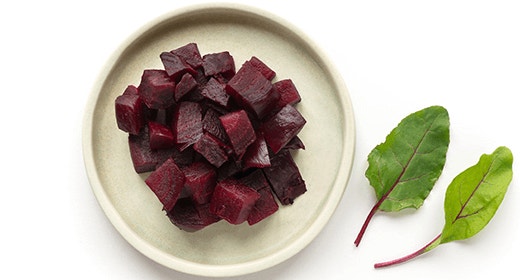

Is your dog really a finicky eater, or could it be something else? There are many factors to consider when you notice that your dog doesn't seem to be eating as usual.
If you're suspicious, take a closer look at exactly what he's eating each day. Does he get the occasional dog treat, or is someone sneaking him extra table scraps?
When you feed your dog a balanced, highly nutritious diet, nothing else is needed. In fact, extra treats can drastically alter your dog's normal intake of dog food. It's similar to the feeling you get after eating too much candy or potato chips. Are you interested in a full meal? Neither is your dog.
IAMS™ dog foods are nutritionally balanced and specifically formulated to meet the needs of dogs in all life stages, and with different lifestyles. There are dry, canned, and pouch varieties, plus options for senior or overweight pets, puppies, and dogs with reduced activity levels. Talk to your veterinarian or an IAMS Pet Care and Nutrition Center professional for advice on what's best for your dog.
Recommended feeding amounts are shown on every package. The guidelines are general suggestions for the amount of food you should feed your dog. Every dog is different and does not need the same amount of food. Your dog's activity level and his metabolic makeup are the determining factors. Start with the amount given in the feeding guidelines. Then, add or subtract food as you observe your dog's eating habits and weight.
Portion-Controlled Feeding: Divide the daily amount and feed at specific intervals. It is important to take away all leftover food after 15 to 20 minutes. This sets a pattern for your dog to follow. The portion-controlled feeding method is recommended for giant and large breeds as well as for overweight dogs. Portion control also works well for dogs with special needs.
Free-Choice Feeding: Feed the daily amount and let your dog eat at leisure. This method is recommended for use only with dry foods. Remember, dogs eat to meet their energy requirements. They quickly define their own daily portions when eating free-choice.
Water: Regardless of which food you choose to feed, your dog must have plenty of fresh, clean water. A good dog feeding tip is to place the water 3 to 5 feet from the food. This will help prevent your dog from gulping water and air in addition to food.
Routine: Dogs need it. Feeding at the same time and place every day establishes a comfortable eating pattern.
The Veterinarian: Regular visits help keep your dog happy and healthy!


Beet pulp is the material that remains after sugar is extracted from sugar beets—not red beets. Beet pulp is a source of fiber in dog diets.
Fiber can be classified as nonfermentable and fermentable. Nonfermentable fiber remains undigested as it passes through the intestines, thereby providing bulk to move wastes out. Cellulose is a nonfermentable fiber.
Fermentable fiber is broken down in the intestines into short-chain fatty acids that provide energy for cells lining the intestine.
Moderately fermentable fiber does both: It provides bulk to move waste and provides energy for cells lining the intestine. Beet pulp is a moderately fermentable fiber.
'Beet pulp is harmful.'
Beet pulp contains no toxins and is a very safe fiber source.
'Beet pulp affects coat color.'
There is nothing in beet pulp that can affect coat pigment. The inside is light in color. The outside peel, which is dark, is not used.
'Beet pulp contains sugar.'
By definition, beet pulp is the material that remains after the sugar is removed from sugar beets. Therefore, beet pulp contains no sugar.
'Beet pulp causes bloat.'
Bloat (gastric dilatation-volvulus or GDV) is related to a stomach defect that delays emptying. It is believed that bloat is not related to diet or ingredients, such as beet pulp. However, the cause of bloat remains unknown.